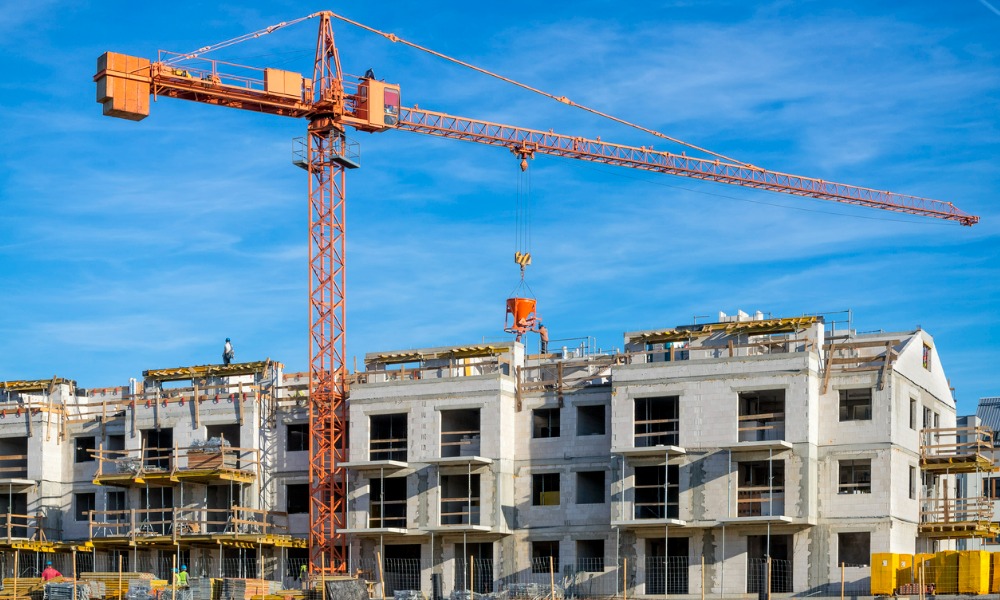New research suggests that creating a green office environment can have a dramatic effect on several areas of employee performance
“We have been ignoring the 90%. We spend 90% of our time indoors and 90% of the cost of a building are the occupants, yet indoor environmental quality and its impact on health and productivity are often an afterthought,” said Joseph Allen.
As assistant professor of exposure assessment science and director of the Healthy Buildings Program at the Harvard Center for Health and the Global Environment, Allen was lead researcher of a recently released study that examined the effects of a building’s design on employee performance.
Results of the study, entitled The Impact of Green Buildings on Cognitive Function, suggested that even modest improvements to the indoor environmental quality of an office would have a dramatic impact on the decision-making processes of workers, Allen said.
For instance, employees working in a green building environment with enhanced ventilation scored 101% higher in cognitive performance than those working in a conventional office. The biggest improvements occurred in the following areas:
“When it comes to the decision-making ability of green building occupants, intelligence is in the air,” said John Mandyck, United Technologies Chief Sustainability Officer.
“[These] results show [green buildings] can also become important human resource tools for all indoor environments where cognitive abilities are critical to productivity, learning and safety.”
Tan Boon Kuan, group general manager of Carrier Singapore, highlighted the value of the research conducted by Allen and his team.
"The results of this study signal that we should place equal importance on the improved indoor air quality provided by green buildings, not only for health reasons, but also to improve cognitive function and productivity," he said.
The study was conducted by researchers at the Harvard University T. H. Chan School of Public Health’s Center for Health and the Global Environment, SUNY Upstate Medical University and Syracuse University.
Related stories:
Sick building syndrome and HR’s battle against the haze
Tech firm slammed for unsuitable working conditions
Singapore’s new $9.5m ‘invite-only’ gym for C-Suite executives
As assistant professor of exposure assessment science and director of the Healthy Buildings Program at the Harvard Center for Health and the Global Environment, Allen was lead researcher of a recently released study that examined the effects of a building’s design on employee performance.
Results of the study, entitled The Impact of Green Buildings on Cognitive Function, suggested that even modest improvements to the indoor environmental quality of an office would have a dramatic impact on the decision-making processes of workers, Allen said.
For instance, employees working in a green building environment with enhanced ventilation scored 101% higher in cognitive performance than those working in a conventional office. The biggest improvements occurred in the following areas:
- Crisis response: 97% higher for green environments and 131% higher for green environments with enhanced ventilation
- Information usage: 172% higher for green environments and 299% higher for green environments with enhanced ventilation
- Strategy: 183% higher for green environments and 288% higher for green environments with enhanced ventilation
“When it comes to the decision-making ability of green building occupants, intelligence is in the air,” said John Mandyck, United Technologies Chief Sustainability Officer.
“[These] results show [green buildings] can also become important human resource tools for all indoor environments where cognitive abilities are critical to productivity, learning and safety.”
Tan Boon Kuan, group general manager of Carrier Singapore, highlighted the value of the research conducted by Allen and his team.
"The results of this study signal that we should place equal importance on the improved indoor air quality provided by green buildings, not only for health reasons, but also to improve cognitive function and productivity," he said.
The study was conducted by researchers at the Harvard University T. H. Chan School of Public Health’s Center for Health and the Global Environment, SUNY Upstate Medical University and Syracuse University.
Related stories:
Sick building syndrome and HR’s battle against the haze
Tech firm slammed for unsuitable working conditions
Singapore’s new $9.5m ‘invite-only’ gym for C-Suite executives





